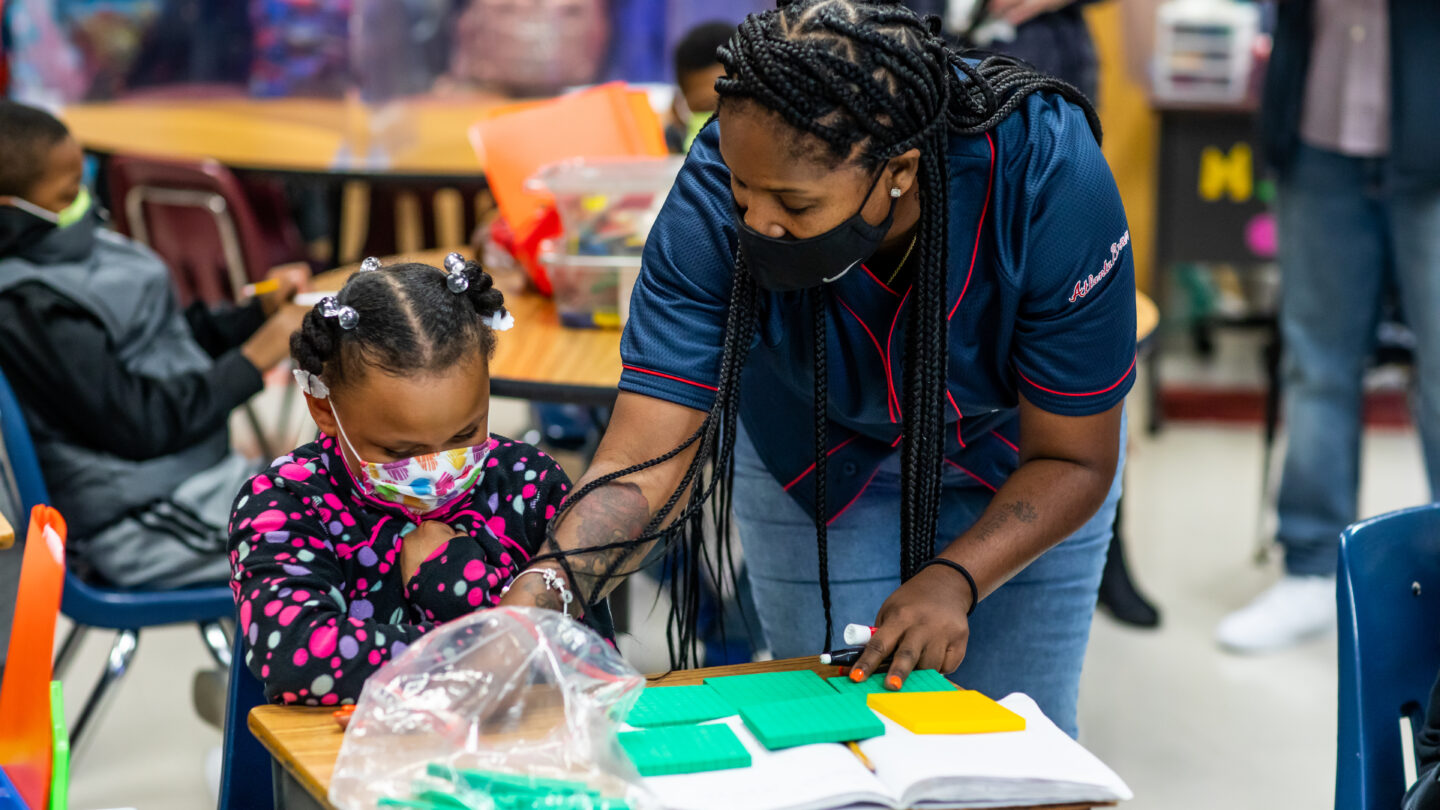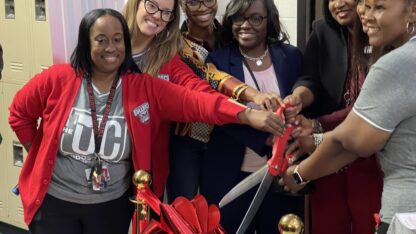Report: Pandemic negatively affected Atlanta students' math achievement

The pandemic has negatively affected math scores, especially for Atlanta’s younger students, according to new research from Georgia State University. Researchers at Georgia Policy Labs compared data in Fulton County Schools, Clayton County Public Schools, and an anonymous school district for the second consecutive year.
“We’re looking for some evidence of bounce back, you know, some evidence that the recovery is taking hold and having an effect, and for some students, we’re seeing that,” says Thomas Goldring, the director of research at Georgia Policy Labs. “But the math in particular, and especially for those younger students…we are seeing sort of a stubborn sort of decline since the pandemic began, and then not a huge bounce back.”
Examining Fulton
GSU divided Fulton county, which spans almost 90 miles, into northern and southern schools. The northern part of the county is more affluent and generally has higher test scores. Before the pandemic, schools on the south side were catching up. But when COVID hit, GSU found those gains were lost.
“Some really good efforts at closing those disparities before the pandemic have been undone by the pandemic and by the impact of the pandemic,” Goldring says. “So we’re seeing some of those disparities increasing.”
Fulton’s chief academic officer Cliff Jones says to address the disparities, the district has customized its recovery plans.
“Schools got more money based on the needs of the students in their school,” he says. “So we also have looked at some extended time, variables related to groups of students who might need more or less time to either complete mastery of standards, or just in general. So we’re talking about…school as a social construct. It is really important to note that we were looking at academics, but we’re also supporting the social and emotional welfare of our students and our communities and staff as well.”
Fulton has also increased its number of summer school students this year. Enrollment has gone from 7,000 kids last year to 11,000 this summer. Jones says the district required summer school for students who scored in the first level of the Georgia Milestones annual assessment. That means a student hasn’t mastered the standards in a particular subject for his grade level. Parents can opt out of the recommendation.
Clayton’s Analysis
The Clayton County school district also uses GSU’s data to help shape instruction. Jackie Johnson, the district’s director of research, evaluation, assessment, and accountability, says officials knew math was a weak spot, but the data confirmed the need for a targeted approach.
“[Low math scores weren’t] totally… a shock to us by any means,” she says. “But we are putting forth a lot of effort in the area of mathematics…with some of the strategies and implementation efforts with rigor that are happening right now across the district.”
Clayton offers free tutoring for students through tutor.com and Johnson says the district will offer free tutoring (whether virtual or in-person) to all students next year. She says the feedback GSU has provided has helped officials decide whether or not to stick with a new initiative or not.
“If we have a program that is being implemented, we provide them with the list of students who are being targeted in that specific program, and then they will help us see if the students have made gains compared to other students who did not participate in that program,” she says.
Goldring says GSU will continue to provide feedback for districts.
“We’re suggesting these evidence-based strategies for recovering from the pandemic, but we’re also really emphasizing the need to continue to look at how these programs are doing so districts are able to refine them, and hopefully maximize the benefit for as many students as possible,” he says. “But in particular, those students who, we see in this kind of report have been struggling over the last couple of years.”








